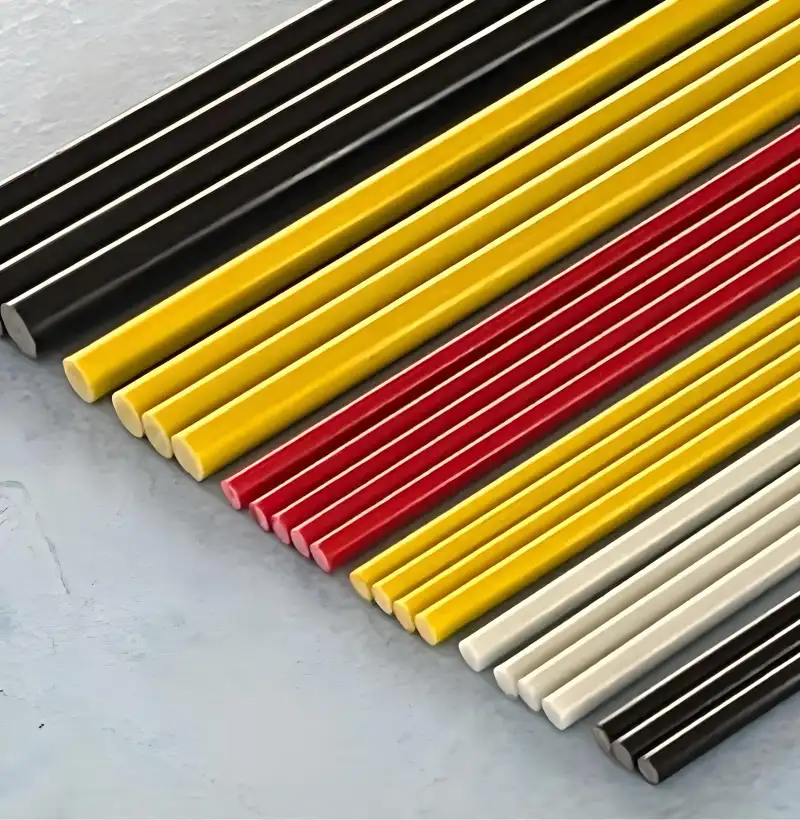By Peter Liu, FRP Materials Engineer @GlobalGrate Solutions
Let’s talk about diameters – and no, this isn’t a geometry class. Choosing the right size for solid round FRP rods might seem simple, but get it wrong, and your project could go from “rock solid” to “rock bottom” faster than you can say fiber-reinforced polymer.

solid round FRP rod
Why Diameter Matters More Than You Think
FRP rods range from pencil-thin 3mm rods (perfect for electrical insulators in Tokyo subway tunnels) to beastly 150mm columns holding up fish farm platforms in Norway’s fjords. The magic number affects:
- Bending stiffness (a 20mm rod resists 4x more force than a 10mm one)
- Weight (1 meter of 50mm rod = 1.2kg, while 100mm = 4.8kg – try lugging that up a cell tower!)
- Cost (thicker isn’t always better; oversizing wastes up to 35% material, says a 2023 MIT study)
The Goldilocks Dilemma: Case Studies
- Too Thin: A California solar farm used 8mm rods for panel mounts. Cue seagull landings snapping rods like toothpicks. Upgrade to 12mm? Problem solved.
- Too Thick: A German auto plant installed 80mm rods for conveyor guards. Workers nicknamed them “The Berlin Wall.” Downsizing to 50mm freed up 11% floor space.
- Just Right: Singapore’s Marina Bay walkway uses 25mm rods for handrails – thick enough to survive monsoon winds, slim enough for Instagram-worthy ocean views.
The Hidden Curveball: Thermal Expansion
Here’s where engineers often face-palm. FRP expands 3x more than steel when heated. A 10-meter 30mm rod in Dubai’s summer grows 4.2mm – enough to warp connections. Pro tip: For every 10°C temperature swing, add 0.05mm clearance per meter. Or just work nights like that clever Qatar World Cup stadium crew did.
Diameter vs. Reality: 3 Rules of Thumb
- Load First: Need to support 500kg? Use this cheat formula:
Minimum diameter (mm) = √(Load in kg × 0.2) - Environment Second: Saltwater zones? Add 5mm to calculated size as corrosion buffer.
- Aesthetics Third: Museum installations? Match rod width to surrounding structures – the Louvre’s FRP art mounts mirror display case trim (18.5mm, if you’re curious).
 Hengshui Hongwo Technology Co., Ltd.
Hengshui Hongwo Technology Co., Ltd.
WeChat
Scan the QR Code with WeChat